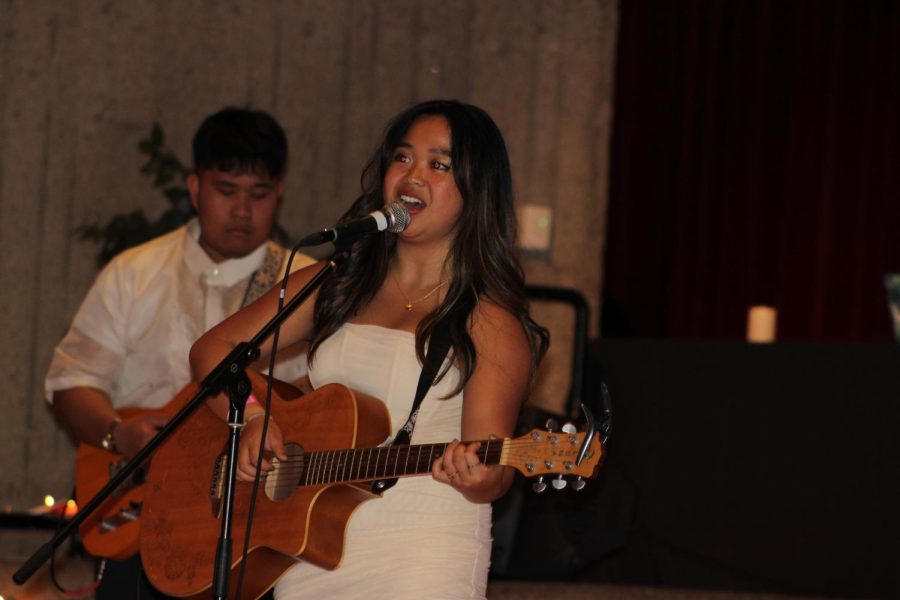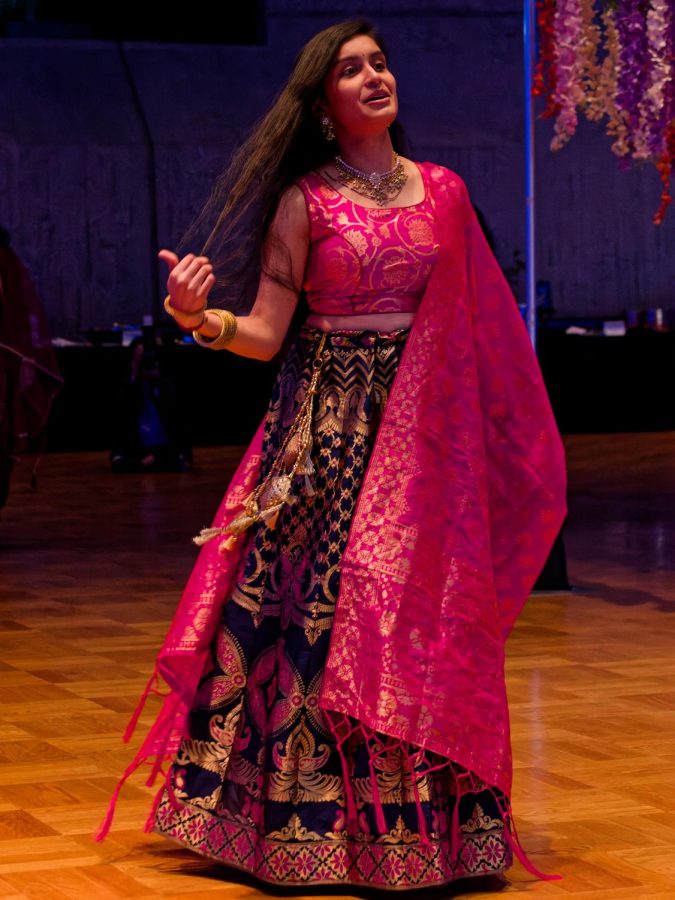Skydiving can be seen as a brave endeavor, a task for bucket lists and a mother’s worst nightmare involving her teenage thrill-seeker.
However, skydiving is also a collegiate sport, not only for the brave, but also for the skilled athlete.
At the end of last semester, two University of Massachusetts Skydiving Club members flew across the country to compete in the United States Parachute Association [USPA]’s annual championship competition for collegiate skydiving clubs.
The UMass students, Matt Leonard, a sophomore chemical engineering major and treasurer of the Skydiving Club, and Kevin Drivas, sophomore sociology major, were the only club members of over 200 at UMass found eligible, as licensed skydivers, to compete in Eloy, Az. The drop zone they were competing in is known as “Skydive Arizona.”
“This is both my first competition and my teammate’s first competition,” said Leonard. “It was thrilling. Almost no one thinks of the skydiving club’s [existence]. It’s not like club hockey or other club sports. Most people don’t even know how it works.”
Leonard and Drivas competed together in two of the championship’s six events, which took place over the course of four days. In what Leonard considered the team’s first and main event, two-way formation skydiving, he and Drivas took third place.
“I was just hoping we didn’t come in last place, never mind come in the top three,” said Drivas.
Essentially, formation skydiving involves performing as many USPA-approved formations in the air within an allotted time frame. Skydives for each team are filmed so that judges may accurately recall the quality and quantity of formations.
“It definitely takes skill to skydive,” said Drivas. “Anyone can just fall out of sky, but it takes talent to skydive.”
The pair faced eighteen teams in their first event, and many of the competitors were from the nation’s top military collegiate academies. Leonard and Drivas were the only civilian team in the two-way formation skydiving event to place in the top six.
According to Leonard, many of the non-civilian teams had practiced skydiving with over 40-50 jumps.
“Military teams are at an advantage in that our taxes basically pay for [their students] to skydive,” said Leonard. “Their facilities and funding from their schools are definitely a huge advantage.
“At our first competition, for us to place so well against military teams in a club sport that isn’t well known was a huge feat for us,” continued Leonard. “I can’t even begin to describe my excitement.”
Because of the expensive nature of the sport, Leonard and Drivas, who each paid for their entire way to competition out-of-pocket, a total of nearly $1,000 apiece for plane tickets and registration fees, could not afford to practice with more than 10-15 jumps before competing. The UMass Skydiving Club’s home drop zone, “Jumptown,” is in Orange, Mass.
“It’s a very expensive sport,” said Leonard, who has been skydiving for a little over a year and has completed 95 jumps. “Every time you practice or compete, you basically have to pay for a plane ticket.”
Leonard also explained that skydiving equipment is highly regulated and needs to be replaced more frequently than most other sports’ equipment pieces.
“The expense is why the sport isn’t as popular,” said Leonard, “but I would definitely say it’s a growing sport. I didn’t expect so many teams to be at the competition, but there were a lot of teams.”
Nevertheless, Drivas iterated that the rush of skydiving is well worth the cost.
“When you’re skydiving, it’s kind of a surreal feeling,” said Drivas. “You don’t have to worry about anything else in your life. Your only job is to skydive.”
“I’m kind of over being scared,” added Drivas, who has completed 124 jumps, some of which were from a height of up to 13,500 ft.
Leonard’s and Drivas’ second event was the six-way speed, which is a challenge to be the team who can build three formations the fastest after exiting the plane. Leonard and Drivas collaborated with skydivers from the University of Connecticut, Rochester Institute of Technology, the University of Buffalo and the University of Minnesota for this event.
Their team placed sixth, behind the United States Military Academy at Westpoint. They were the first civilian team, of 13 teams, to place in the competition’s event.
The team’s assigned formations are called “snowflake,” “dogbone,” and “star.” Further information on these formations may be found at USPA.org, by searching under “SIM” or Skydiver’s Information Manual and clicking the link to “Competition.”
Also according to Leonard, members of the UMass Student Government Association were unsure how to fund the club’s expensive practices, as the majority of club members are unlicensed and therefore cannot compete. There are only two other members of the club actively pursuing licenses. For the last 15 years, since its inception, the club has primarily been a tandem skydivers’ club.
Leonard and Drivas are looking to change that.
“This is my first year on the [club’s] board,” said Leonard. “And as sophomores, Drivas and I haven’t been around the club long enough to take it in the direction we want it to go in. We’re trying to make it a club sport, and our first step is to try to market the club for the rest of the semester so more people will join.”
“Our goal is to compete every year,” continued Leonard. “It’s a hefty expense, but hopefully the school will eventually help fund us. Though I do understand why they didn’t pay for it since they would only be sending out two members of the team [to compete].”
The pair also wants to encourage more members to go through the processes of becoming licensed.
“A lot of people think it must feel like you’re falling, but it doesn’t feel like that at all. When you get out of the plane, you don’t have a falling sensation, it just feels like you’re floating. It’s calming. All your worries stay on the ground.”
Alyssa Creamer can be reached at [email protected].





Tim Donovan • Feb 18, 2011 at 2:53 pm
Great to hear of your success at the collegiate competition. I am a retired Air Force Special Operations Pararescueman with over 750 jumps, recently relocated to the Boston area, and working at Hanscom AFB, MA as a govt contractor. I was a member of the Air Force Demonstration Jump Team (STARS) in the late 90’s and I am very interested in supporting your goals either as a member or supporter. Please add me to your distro list regarding membership requirements, DZ activities and upcoming events in Orange, MA. Thanks.
v/r
Tim Donovan
850 585-8216